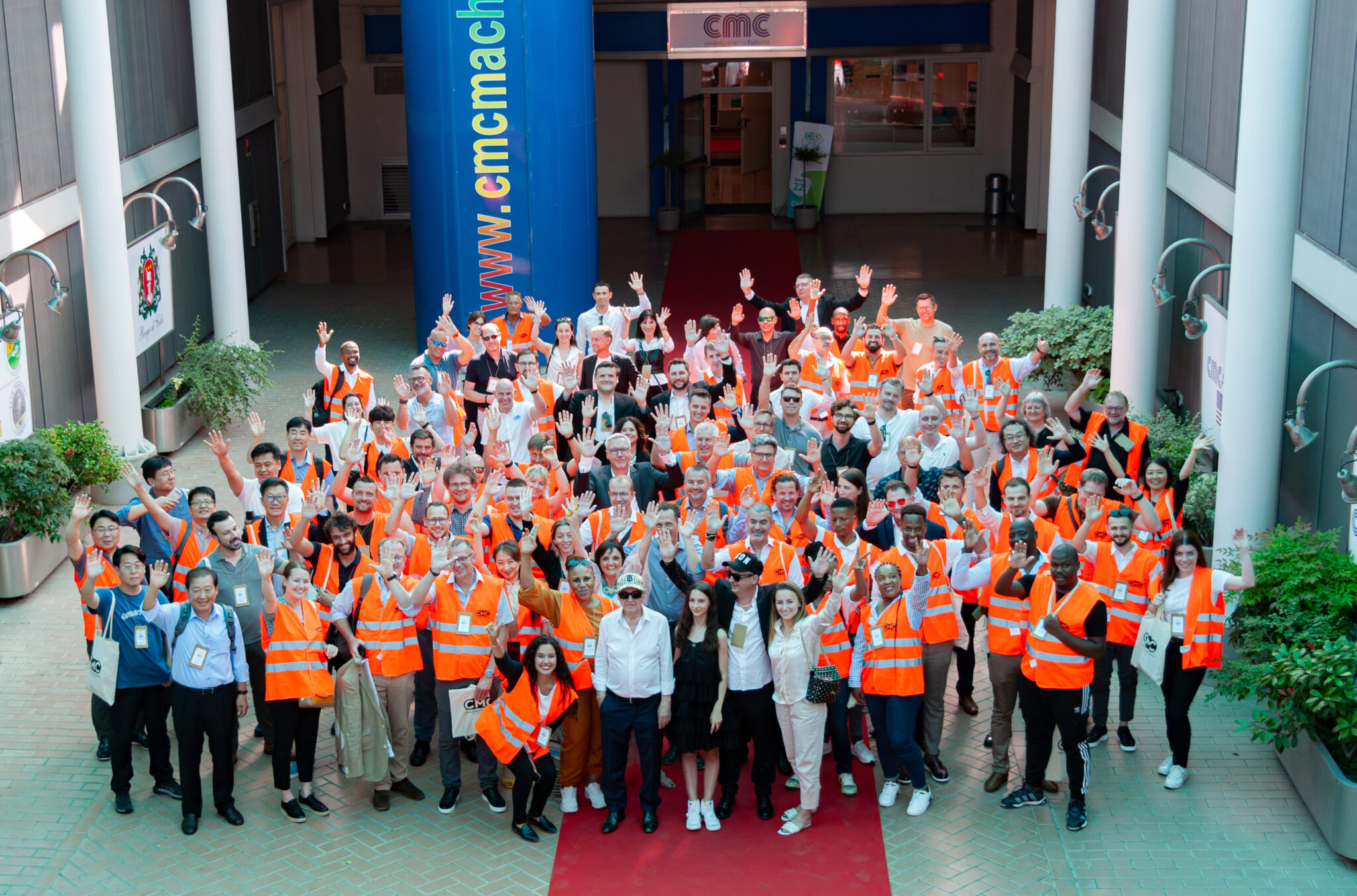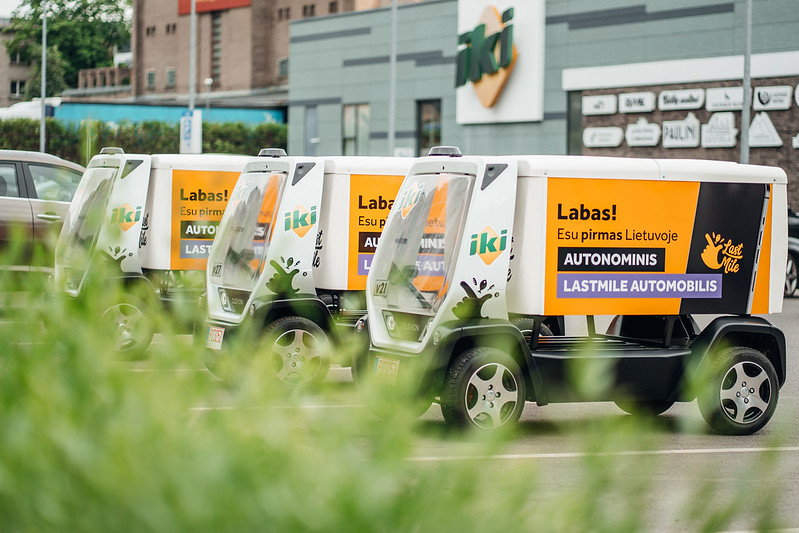CID23, the 10th edition of CMC Innovation Day, took place last Thursday, June 22nd. Organized annually by CMC Packaging Automation, a company in the portfolio of KKR Global Impact Fund and supported by Amazon’s Climate Pledge Fund, this event has become a tradition in the on-demand packaging sector. The event was held at CMC’s headquarters in Città di Castello (PG), Italy.
The focus of the event was on nurturing talent within the company, providing a day of study and in-depth analysis to showcase innovations in an industry that has persevered despite recent challenges and discovered opportunities for growth and improvement. The keyword for the day was ‘REDUCE’: reducing waste and minimizing impact while maintaining efficiency and production performance.
CID23 attracted over 150 guests from five continents, representing major eCommerce companies and logistics players. It served as a platform for sharing ideas and best practices regarding the challenges and opportunities in sustainable logistics.
CMC’s initiative demonstrates the importance of establishing a business model that engages and collaborates with the outside world, drawing from new experiences to grow and stay relevant. The underlying theme of the event was the inseparable link between technological and ecological innovation. Leading companies in their respective sectors, including Geox, Kering, Urban Outfitters, and General Motors, shared valuable insights, highlighting the value of automation in B2B and B2C business processes to enhance overall efficiency and performance optimization.
Alessandro di Rita, Head of Engineering at Kering, stated: “Our long-standing strategic partnership with CMC has proven instrumental in achieving our sustainability goals. Thanks to on-demand packaging technology, we have significantly reduced emissions and improved production times, contributing to environmental preservation and achieving greater operational efficiency. CMC Packaging Automation ensures quality and aligns with our brand, providing maximum product protection during transportation. Our continued investment in this partnership showcases the trust we place in CMC to develop even more innovative and efficient solutions for the future”.
Alessandro de Marco, B2C Logistics Manager at Geox, commented: “The international and cross-cutting context in terms of product type and operational area provided an extraordinary opportunity, not only as a testimonial but also to realize that we are key players in addressing the current market and eco-sustainability challenges”.
Brian Horton, Supply Chain Director at Urban Outfitters stated: “It was great being able to share the journey of designing and launching our new highly automated facility that will leverage CMC Genesys. It was also great listening to other customers and industry colleagues regarding their current, but common challenges in the marketplace. My biggest takeaway was simply the reminder that the world’s resources are limited so the importance of Sustainability in packaging and subsequently all across the supply chain, must be a focal point moving forward”.
Francesco Ponti, CEO of CMC, said: “Through innovation and research, CMC Packaging Automation aims to become the global 3D packaging leader, with the ambitious goal of finding new solutions for sustainability. The success of CID23 confirms our ongoing commitment to meeting customer needs and driving innovation in the 3D packaging sector. We will continue to invest in our resources, expertise, and technologies to maintain our leadership position and offer increasingly advanced and sustainable solutions. We are delighted with the attendance and the growing interest and awareness of the importance of our industry. The Innovation Day is a strategic event that cannot be missed”.
Pedro Godinho Ramos, Director of Global Impact at KKR, stated: “Days like CID are a testament to CMC’s ingenuity and pursuit of excellence in sustainability and customer service and are an occasion to celebrate all that our people have achieved. We are extremely grateful for the 150 partners that joined us and follow the journey and all there is to come”.
An innovation strategy rooted in sustainability, supported by numbers, as demonstrated by CMC’s inaugural Sustainability Report, exclusively presented during CID23, showcasing the company’s key accomplishments and future ESG objectives.
In this manner, CMC has raised the bar for innovation, positioning itself as a prominent player in the industry, with the aim of creating a more resilient and future-oriented sector. As part of the event, the complete range of on-demand packaging machines was unveiled, including the new Hybrid Advance and Envelope on-demand products. With this cutting-edge technology, CMC solidifies its position as the unrivaled leader in 3D packaging, capable of automating customized secondary packaging, whether it be boxes, bags, or envelopes.
Through these efforts, CMC remains dedicated to leading the way in innovation within the packaging industry, embracing sustainable solutions that align with global market needs. The CID23 presents an invaluable opportunity to share knowledge, foster collaboration, and collectively shape the future of sustainable packaging and logistics alongside our customers.
Based in Città di Castello (PG), CMC Spa is a private company engaged in the design, production, and sale of innovative solutions and high-tech machinery for mailing, graphic art, e-commerce, and logistics. Founded in 1980, the company has dedicated itself to developing strategies that could transform it into the leading provider of technologies, services, components, and professional technical training. CMC has always been attentive to promptly respond to the changing market demands with creative projects and tailor-made solutions. With the exponential growth of e-commerce reshaping the shipping industry, CMC now assists retailers and logistics companies in optimizing the order fulfillment process and using sustainable, robust, highly personalized, and secure packaging through its popular and award-winning 3D packaging technology, which perfectly adapts to the content of the package.






